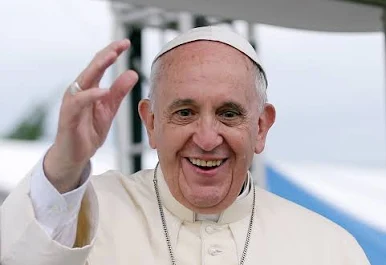Is COP28 another Missed Opportunity for Climate Justice?
The 28th Conference of the Parties (COP28) to the United Nations Framework Convention on Climate Change (UNFCCC) recently concluded, leaving communities in the Global South questioning whether their voices were truly heard and their concerns adequately addressed. While the conference boasted progress on issues like the Loss and Damage Fund and climate finance, many communities felt it ultimately fell short of delivering the concrete actions and recognition they desperately need.
One of the most significant concerns raised by Global South delegates was the lack of a clear and ambitious commitment from developed nations to end their reliance on fossil fuels. While renewable energy technologies are rapidly advancing, the continued dominance of fossil fuels in the global energy mix is a major driver of climate change,disproportionately impacting vulnerable communities in the Global South. These communities are already experiencing devastating consequences like rising sea levels, extreme weather events, and agricultural losses, and without a swift transition away from fossil fuels, these impacts are only expected to worsen.
While COP28 acknowledged the importance of ending dependence on fossil fuels, concrete plans and timelines for achieving this remain vague. This lack of urgency leaves communities in the Global South feeling abandoned and their needs disregarded.
Another major concern was the limited progress made on sharing renewable energy technologies with countries in the Global South. Developed nations often hold the patents and resources for these technologies, making them inaccessible and unaffordable for many developing countries. This creates a stark inequality, where wealthy nations reap the benefits of clean energy while communities in the Global South are forced to bear the brunt of climate change caused by fossil fuels.
COP28 saw some progress on this issue, with discussions around technology transfer mechanisms and capacity building initiatives. However, these discussions lacked the specificity and urgency needed to make a real difference.Without a concerted effort to facilitate the rapid and widespread adoption of renewable energy technologies in the Global South, achieving a just and sustainable future remains an elusive goal.
Beyond technology access, communities in the Global South also emphasized the need for financial assistance to adapt to the already-present impacts of climate change. The Loss and Damage Fund established at COP28 was a step in the right direction, but the details surrounding its funding and operationalization remain unclear. This lack of clarity creates uncertainty and hinders the ability of communities to plan for the future.
Furthermore, the voices of indigenous communities and grassroots organizations were often marginalized in the negotiations. These groups possess invaluable knowledge and experience in managing their land and resources sustainably. Their exclusion from formal decision-making processes not only undermines their contributions but also hinders the development of truly effective climate action plans.
While COP28 may not have delivered the immediate solutions that many communities in the Global South were hoping for, it is important to acknowledge the progress that was made. However, this progress cannot be considered sufficient.Developed countries must act with greater urgency and ambition to:
- End their reliance on fossil fuels and commit to a rapid and just transition to renewable energy.
- Facilitate the widespread adoption of renewable energy technologies in the Global South through technology transfer mechanisms and capacity building initiatives.
- Provide adequate financial assistance to communities in the Global South to adapt to the already-present impacts of climate change.
- Include the voices and perspectives of indigenous communities and grassroots organizations in all aspects of climate action planning and implementation.
Only through a concerted effort that addresses the needs of the Global South with the same urgency and commitment as those of developed nations can we achieve a truly just and sustainable future for all. This requires a fundamental shift in power dynamics, one that prioritizes equity and collaboration over dominance and self-interest. COP28 has shown us that there is still a long way to go. It is now time to turn words into action and ensure that no one is left behind in the fight against climate change.



